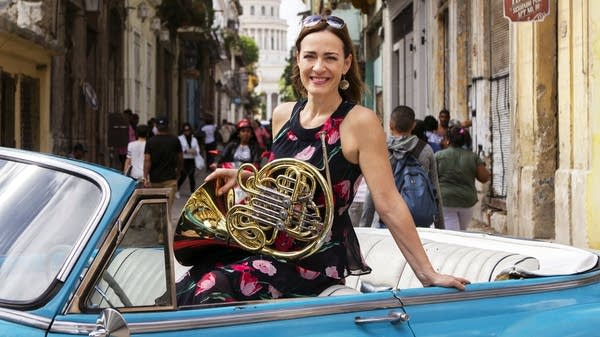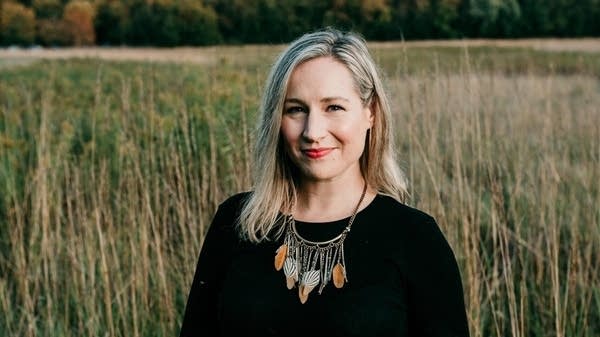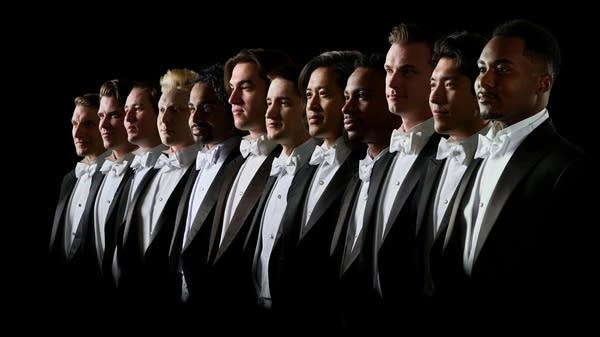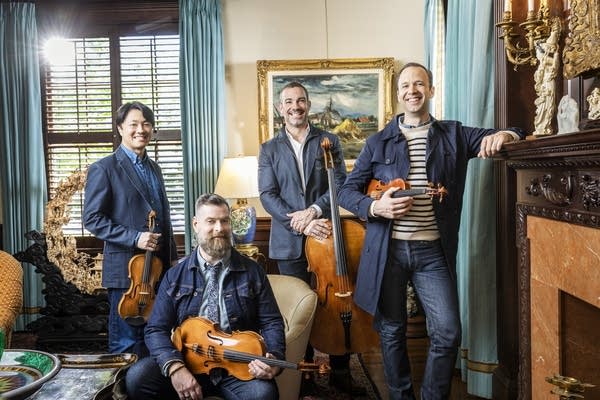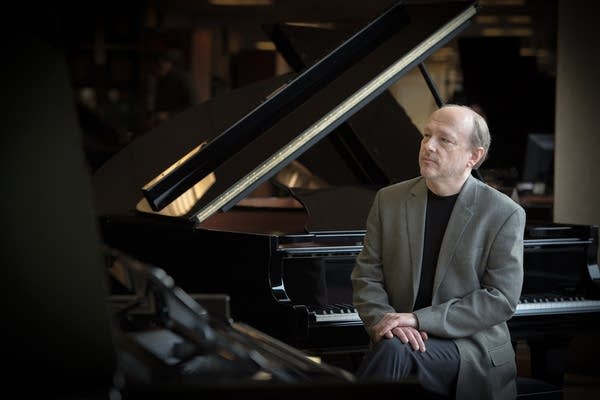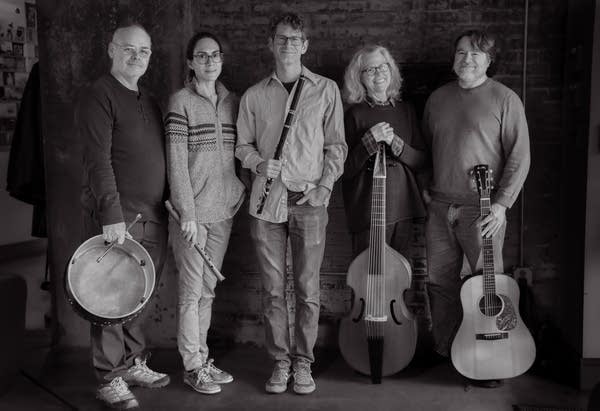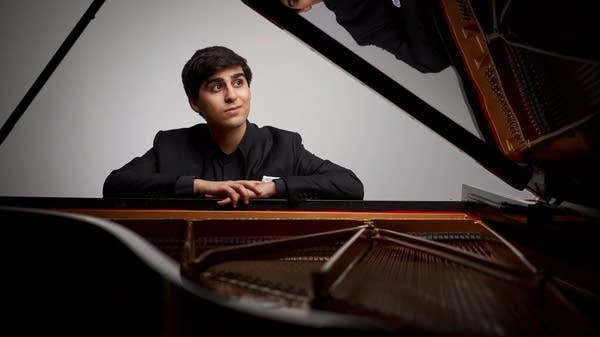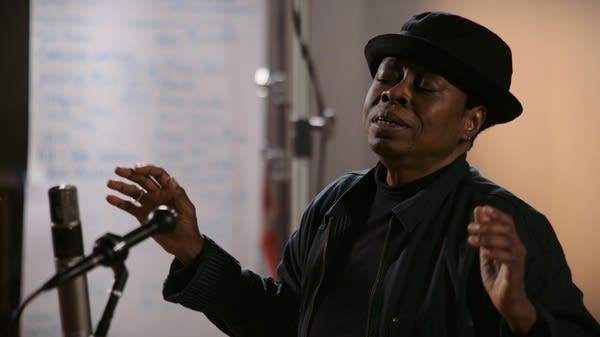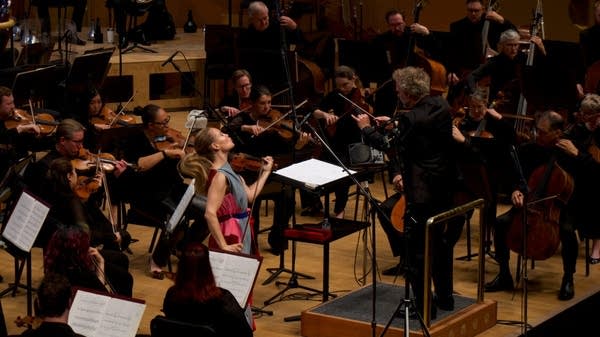"I feel like Bach's music really brings me back to that sense of why I am a musician and what it means to be a musician - that you're a conduit for something greater than yourself and that you can reach out and share it with everyone who is listening to uplift their spirits."

Rachel Barton Pine grew up playing the music of J.S. Bach at her hometown church in Chicago, St. Paul's United Church of Christ. It's a beautiful venue that event has a stained-glass window of the Bach himself, the perfect setting for her new recording of Bach's Sonata's and Partita's, "And when I was thinking about what would be a good acoustic for the album, I knew I always loved hearing Bach in my church but I was a little suspicious whether my opinion was tainted by sentimentality and polluted by familiarity so I wanted to get my engineer's ears in on it. And once we started the session we realized that the acoustic really is exceptional. It has a combination of reverb, of bloom to the sound, you might say. And also clarity. We just use one pair of mics and there is no doctoring of the sound post production. You're just getting the live sound from these two mics and that is that."
When you think of the Baroque master Johann Sebastian Bach, you probably think of him as a great composer, or as a phenomenal keyboardist, you may not realize he was also an exceptional violinist, "Bach's first instrument was the violin, which he learned from his violinist father and many of his first jobs involved significant duties on violin," Rachel explains, "But I think the most telling fact is that the fugue of the third sonata, the sonata in C major, is the longest fugue that he ever wrote. Now if you ask somebody, what do you think Bach wrote his longest fugue for? Some people would say ensemble, like an orchestra or chamber group, some people might think it was for organ, but it was for violin, this little instrument with only four strings. And it's not just long, this movement is absolutely glorious. And I think that's what makes this set of music so extraordinary.
Bach, compositionally, the way he crafted the music was like nobody else. I mean, he certainly stood on the shoulders of this 60 plus year German tradition of improvising and composing in multiple voices for violin alone. But none the less, Bach definitely took it to the next level. And you can analyze the whole thing and be in awe. But then when you listen to it, you don't think about any of that stuff. You're just on an emotional journey."
Every time Rachel revisits these sonatas and partitas she says she gains a deeper understanding of them. Recording them, also required her clarify her intentions for every measure. In conjunction with this new recording, her publisher released a sheet music edition of her dynamics, phrasing indications, bowings and fingerings, "Bach left very few dynamic indications on the page," says Rachel, "which didn't mean he wanted you to play it blah but it meant that he wanted you to make your own choices and be personal and individual about it which indeed everybody is.
There is no one right way to play it; the only right way to play it is how you yourself truly feel it should go.
So I don't want anybody to copy me, necessarily, but I'm hoping that by putting down all my thoughts on the page, which isn't usually done, that that will enable people to sort of get their own creative juices flowing and start to experiment and see if they like this idea and don't like that idea and what's their idea."
Rachel Barton Pine believes Bach's music allows you to be in touch with something much greater than yourself. And he's had a tremendous impact on her life. That's why her new recording of Bach's sonatas and partitas is titled, 'Testament,' "It's a testament to Bach's genius, that he composed these amazing works in the first place, a testament to Bach's role in my life, helping me learn about what it means to be a musician, it's a testament to all of those who have taught me and inspired me and have helped me get to the point I've gotten in my understanding of Bach. Just so many different things. It seemed like the perfect title."
Love the music?
Show your support by making a gift to YourClassical.
Each day, we’re here for you with thoughtful streams that set the tone for your day – not to mention the stories and programs that inspire you to new discovery and help you explore the music you love.
YourClassical is available for free, because we are listener-supported public media. Take a moment to make your gift today.
Your Donation
About New Classical Tracks®
Host Julie Amacher provides an in-depth exploration of a new classical music release each week.
Subscribe on Apple Podcasts, TuneIn, Radio Public, or RSS.


